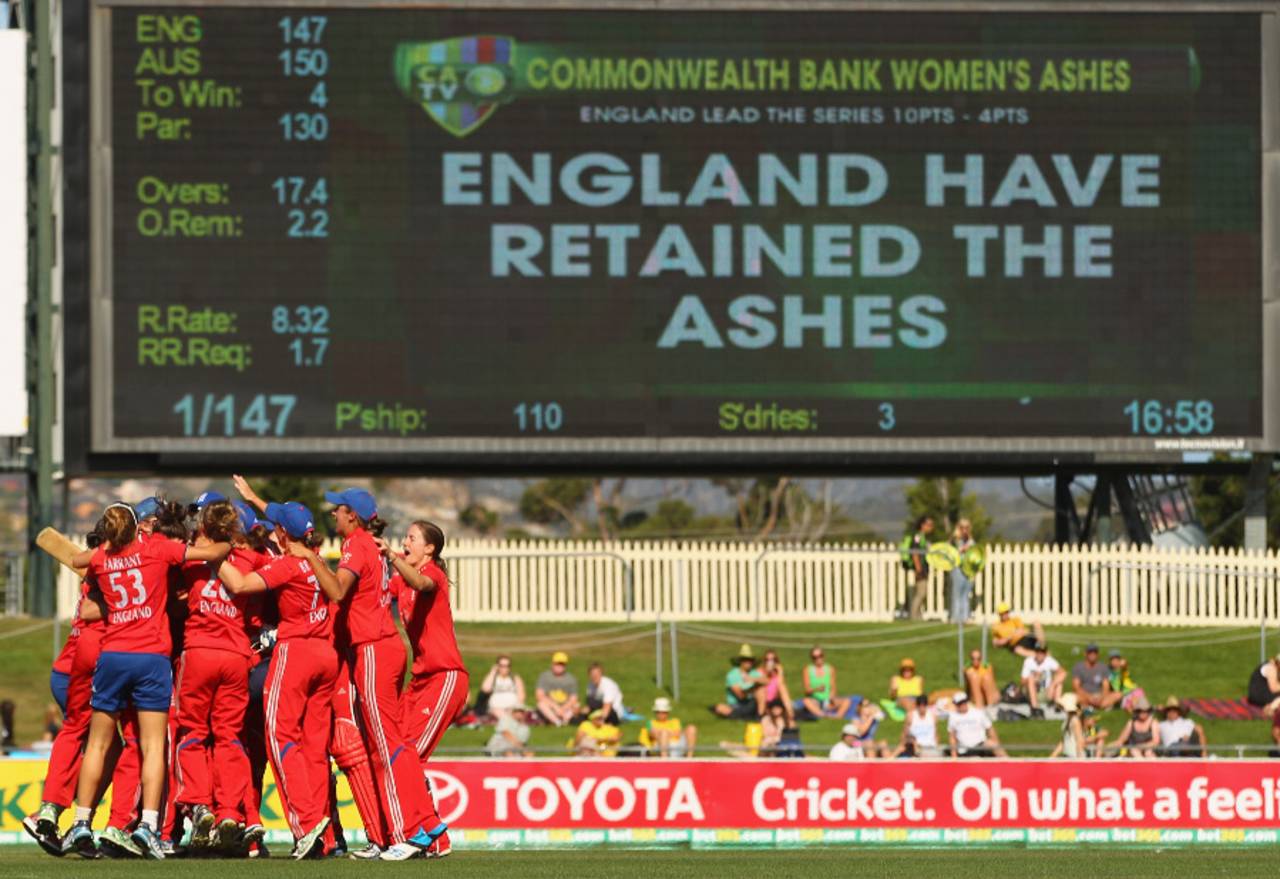Since the pioneering World Twenty20 in 2009, when the men's and women's tournaments took place in conjunction for the first time, T20 double headers have been hailed as one of the best things to have ever happened to women's cricket, and for good reason.
Scheduling a women's match directly prior to a men's match has undoubtedly meant larger audiences for women's cricket, and attracted new fans to the sport. And the exposure the women's game has received - with the prospect of televising two matches back to back a far more financially attractive one for the TV companies - has also increased as a result.
The benefits are obvious. But here is the thing: if you have ever doubted the continuing overwhelming disparity between men's and women's cricket, go and cover a double header. I reckon it'd be a pretty eye-opening experience. It was for me.
Here is what will happen, based on my experience of the three T20s which were played recently in Australia against England, as part of the women's Ashes series:
1. Despite the fact that women's international over rates are vastly superior to those of their male counterparts, the umpires will repeatedly tell the players to ensure that they "hurry up" their overs. If they don't finish in time, the "main event" might just start a little bit delayed. And we can't have that, can we?
2. When the women's match starts, there will be next to no one in the press box. Halfway through, a load of journalists will trickle in, because they have been asked to cover the women's game as well as the men's. But what does it matter if you miss half of one of the games you are supposed to be writing about?
3. As usual, free food will be served in the press box to keep the hungry journalists happy. During double headers, though, food is brought in in between the matches, and there will be a group who will complain that fewer delicious treats are available because of the extra journalists who turned up to cover the women's game. Oops.
4. When the women's game ends, the players will have to get off the pitch as quickly as they possibly can, to have ice baths that aren't quite long enough, so that they can vacate the dressing rooms. Their belongings will be unceremoniously dragged out to make way for the men, and sometimes the players themselves won't quite know where their own kit has disappeared to.
5. Whoever is doing the scheduling for Cricket Australia will fail to realise that a two-hour gap between the end of the women's match and the start of the men's will completely undermine the concept of getting people in the ground early to watch the women's game.
6. At least some of the journalists who have been sent to cover the women's match as well as the men's will turn up with no knowledge of its context, and won't have bothered to do any research. This will become obvious in the post-match press conference, when the same group will be unable to recognise Charlotte Edwards, who happens to be the only England captain to have won the Ashes this winter.
7. Edwards will make
92 not out, the highest score of any cricketer, male or female, in a T20I in Australia this winter, in her Ashes-winning innings for England. But during the post-match press conference in the gym at Bellerive, in which we are trying to listen to Edwards reflect on the series win, there will be a constant background of noise and chatter as those from the men's set-up drag equipment in and out, seemingly as loudly as they possibly can. Perhaps Edwards is used to it by now, or perhaps she is too happy to notice, but I will fume inwardly and helplessly the whole way through.
8. England Women will win the Ashes for only the third time ever in Australia, but (as Alison Mitchell pointed out on Twitter) there will be no ticker tape or champagne for them in the post-match celebrations: there is another match about to be played, and lost, by an England side who are coming to the end of their most miserable tour in the history of time. And that, of course, takes priority.
Those are the realities of T20 double headers. From the perspective of that rare cricket journalist who had covered the whole of the rest of the women's tour before the T20s happened, I can tell you this: they stink.
Double headers are clearly the future for international women's T20 cricket, and I'm not saying that's a bad thing - I'm not stupid. But the way things stand, they also have the potential to take the edge off a wonderful series victory, and that makes me sad.
Perhaps, if by some miracle you're a men's cricket journalist or someone who officiates in double headers and you're reading this, in future you could treat the women's teams with the respect they deserve, and not just as an insignificant sideshow. That's all.
Raf Nicholson is a PhD student, an England supporter, a feminist, and fanatical about women's cricket. She tweets here
